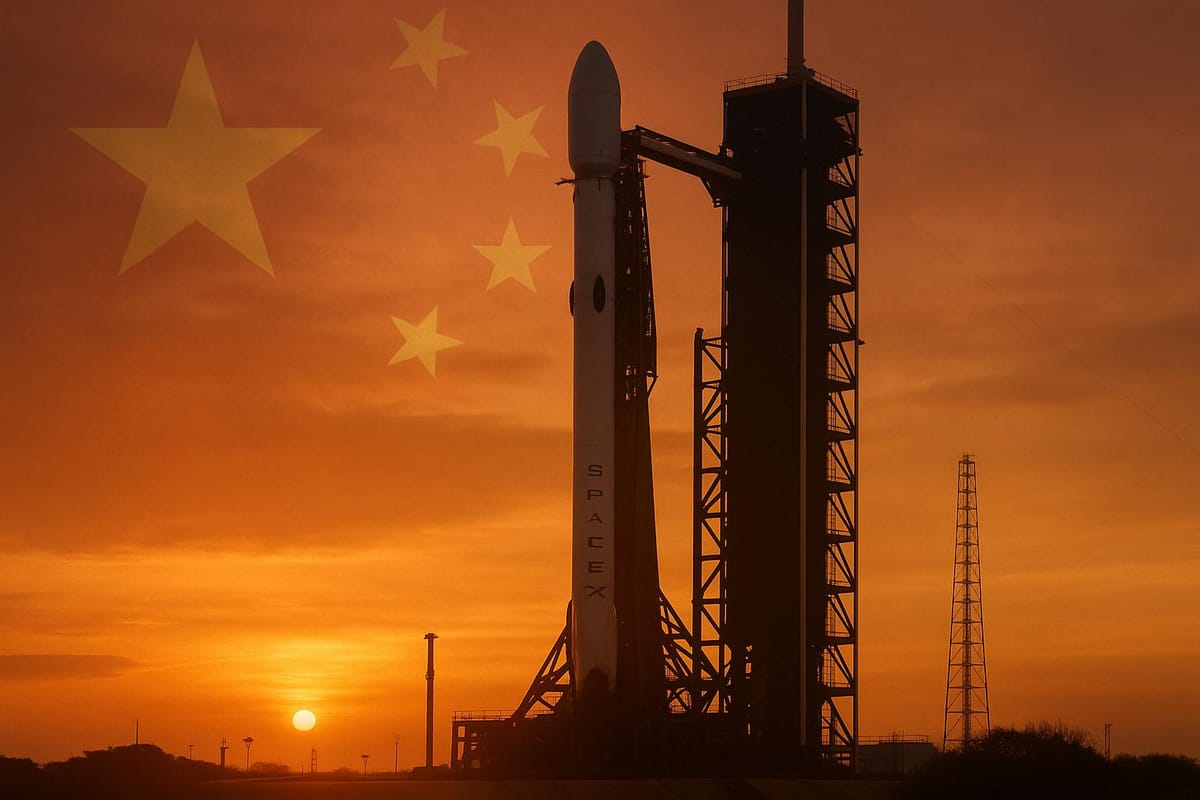Testimony Reveals Chinese Investments in SpaceX
Sealed testimony reveals SpaceX received direct Chinese investment, raising U.S. national security concerns.

Previously sealed court testimony has revealed direct investments from Chinese investors into SpaceX, one of the United States’ leading military contractors. The disclosure, made by a SpaceX insider during a court case in Delaware, has raised fresh concerns about foreign ownership in a company deeply intertwined with U.S. national security.
According to testimony from Iqbaljit Kahlon, a major SpaceX investor, some of the company’s Chinese investors are "directly on the cap table." A capitalization table, or "cap table", outlines the shareholders of a company. This marks the first confirmed instance of direct investments by Chinese entities in SpaceX, which previously had been known to allow only indirect investments through middleman funds.
"They obviously have Chinese investors to be honest", Kahlon stated in a deposition from 2024. The testimony did not clarify the scale of Chinese investments or identify the investors, though Kahlon’s firm has acted as an intermediary for wealthy individuals and funds seeking to buy shares in the private aerospace company.
Concerns Over National Security Risks
SpaceX, which has secured sensitive contracts with NASA, the Pentagon, and U.S. embassies, has faced scrutiny from national security experts over the potential risks posed by foreign investment. Sarah Bauerle Danzman, an Indiana University professor and former State Department advisor, noted the potential dangers of such investments, particularly if they provide access to nonpublic company information.
"If the investors got access to nonpublic information about the company - say, details on its contracts or supply chain - it could be useful to Chinese intelligence", she explained. Such risks, if realized, could have "huge consequences for national security", Danzman said.
Kahlon’s testimony also highlighted the lack of a formal policy within SpaceX regarding investments from countries deemed adversarial by the U.S. government. While SpaceX’s chief financial officer, Bret Johnsen, testified that he advises fund managers to avoid ownership interests from nations like China, Russia, Iran, and North Korea, no official prohibitions appear to exist.
Previously Reported Indirect Investments
Reports of Chinese investments in SpaceX are not new. Previously, Chinese investors were known to have gained indirect stakes in the company by investing in funds managed by intermediaries, including those led by Kahlon. These funds purchased SpaceX shares on behalf of their investors, charging fees for access. The new testimony, however, points to direct stakes in the company, signaling a closer relationship with SpaceX.
Additionally, Kahlon’s communications suggest a more active effort to attract Chinese money. In 2021, despite expressing initial caution about raising funds from mainland China, Kahlon solicited a $50 million investment from a Shanghai-based company for SpaceX shares. Promising quarterly updates on SpaceX’s business development and the opportunity to meet with its chief financial officer, the deal was ultimately canceled when it became public.
Lack of Transparency and Regulatory Gaps
SpaceX’s ownership structure remains largely opaque, and the company has significant discretion over who is permitted to invest. A report earlier this year detailed how SpaceX facilitates Chinese investments by routing money through offshore hubs like the Cayman Islands, which offer secrecy and regulatory flexibility. Companies are only required to report Chinese investments to the U.S. government in limited circumstances, leaving room for ambiguity in how much foreign investment in SpaceX is permitted.
The issue has sparked concern among lawmakers. Following reports of SpaceX’s handling of Chinese investments, House Democrats sent a letter to Defense Secretary Pete Hegseth raising alarms over a potential "lack of transparency" in the company’s dealings. The letter questioned how such practices align with SpaceX’s sensitive work for the Department of Defense and NASA. It remains unclear if any action has been taken in response.
Expanding Foreign Investment Portfolio
Kahlon’s role as a key middleman in SpaceX’s investment ecosystem has allowed him to profit handsomely, with his investor base spanning multiple countries, including Chile, Malaysia, Russia, Qatar, and China. In one email, a China-based financier praised Kahlon for his success, writing, "You made a big fortune." Kahlon replied, "Lol something like that. SpaceX has been the gift that keeps on giving. All thanks to you."
While the identities of many investors remain hidden, court documents revealed that a Los Angeles-based fund with ties to the Qatari royal family also invested in SpaceX through Kahlon. The international reach of these investments highlights the global interest in SpaceX, but it also underscores the potential security risks posed by foreign ownership.
Closing Remarks
The unsealed testimony has shed light on a previously undisclosed dimension of SpaceX’s funding, raising new questions about the company’s transparency and the potential implications of foreign investment in critical U.S. industries. SpaceX declined to comment on the matter, while Kahlon also refrained from making any public statements. For now, the revelations are likely to fuel ongoing debate over the intersection of national security and private sector financing in the aerospace industry.
Comments ()